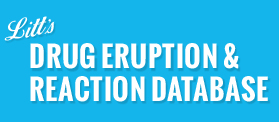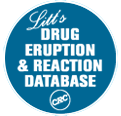Avoid use in patients with severe hepatic impairment.
Advise patients not to breastfeed.
- TRADE NAMES: Inrebic (Impact Biomedicines); TG101348
- INDICATIONS: Treatment of adult patients with intermediate-2 or high-risk primary or secondary (post-polycythemia vera or post-essential thrombocythemia) myelofibrosis.
- CLASS: Janus kinase-2 inhibitor, Kinase inhibitor
- HALF-LIFE: ~114 hours
- FDA APPROVAL DATE: 08/16/2019
- CLINICALLY IMPORTANT, POTENTIALLY HAZARDOUS INTERACTIONS WITH:
CYP3A4 and CYP2C19 inhibitors, strong and moderate CYP3A4 inducers, strong CYP3A4 inhibitors - PREGNANCY: There are no available data on the use of fedratinib in pregnant women to evaluate for a drug-associated risk of major birth defects, miscarriage or adverse maternal or fetal outcomes.
- See adverse reactions attributed to class:
SERIOUS AND FATAL ENCEPHALOPATHY, INCLUDING WERNICKE’S, HAS OCCURRED IN PATIENTS TREATED WITH FEDRATINIB. WERNICKE’S ENCEPHALOPATHY IS A NEUROLOGIC EMERGENCY. ASSESS THIAMINE LEVELS IN ALL PATIENTS PRIOR TO STARTING FEDRATINIB, PERIODICALLY DURING TREATMENT, AND AS CLINICALLY INDICATED. DO NOT START FEDRATINIB IN PATIENTS WITH THIAMINE DEFICIENCY; REPLETE THIAMINE PRIOR TO TREATMENT INITIATION. IF ENCEPHALOPATHY IS SUSPECTED, IMMEDIATELY DISCONTINUE FEDRATINIB AND INITIATE PARENTERAL THIAMINE. MONITOR UNTIL SYMPTOMS RESOLVE OR IMPROVE AND THIAMINE LEVELS NORMALIZE.
See full prescribing information for complete boxed warning
Please login to view the rest of this drug profile.
Page last updated 08/20/2025




